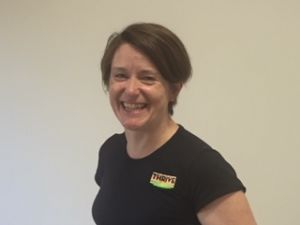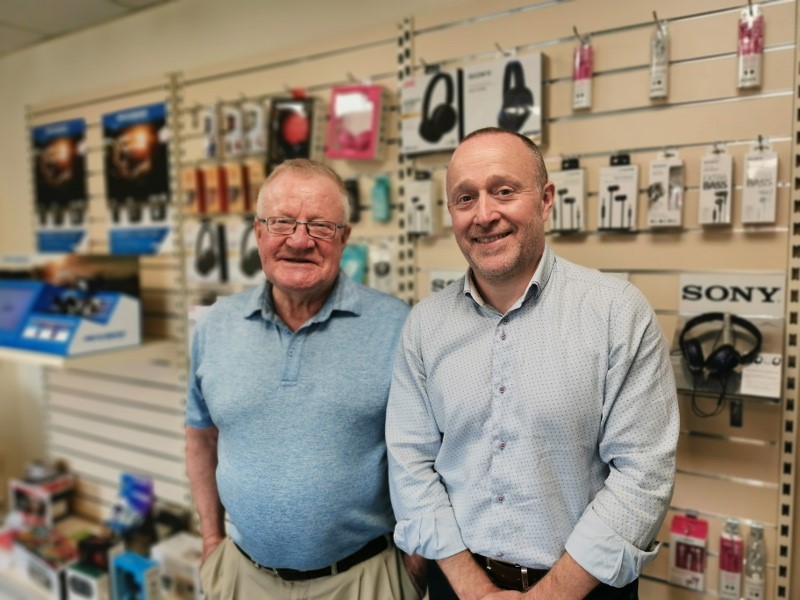Cork native, Mareese Keane is platform director with THRIVE, the ‘Most Valuable AgriFood Tech Accelerator Programme’ in the US by San Francisco based AgFunder.
What is the value proposition for Irish agtech companies seeking to join the THRIVE Accelerator?
Since 2014, THRIVE has been bringing together start-ups, corporations, investors and farmers in a network and ecosystem, focused on accelerating the world’s most leading-edge agricultural technologies. Furthermore, it provides access to market and can be a fantastic beachhead for any start-up company wishing to expand their business into the United States. Additional opportunities can also arise in Europe or Ireland which may in turn provide significant market opportunity for Irish agtech start-ups. This is because we work with global corporate partners and sometimes these partners, may wish to leverage a more local technology within a particular market space. THRIVE was established by Limerickman, John Hartnett, CEO of SVG Ventures and in our most recent programme, we had the pleasure of receiving 276 applications from start-ups across 67 countries.
How does the THRIVE Accelerator support start-ups?

The accelerator programme extends over a four-month period, commencing early spring and running until June. At the start, we bring all the companies together for a few days, providing an opportunity for the start-ups to meet, listen and present to all our corporate partners. This allows all parties to understand each other’s needs and gain insight into what they’re looking for. During the initial introductory week, we also provide some field trips, along with workshops around understanding your value proposition. The focus is to produce and articulate an effective value proposition with a clear statement of tangible results that a customer can get from using your product or services.
“We invest $100,000 in every company that is accepted onto the accelerator, half as cash and the remaining in programme value”
The programme then moves to a weekly webinar series where we check in with the group once a week, along with presenting some business development curriculum via webinars. We also involve a large bank of mentors and corporates who engage with the start-ups, providing advice and feedback across the business spectrum. Relationship building over the course of the four months is an important part of the programme, providing the start-ups with a significant opportunity to connect within a valued network. In addition, if you need to have your technology validated in the field, we also have access to a wide network of farmers and growers who can help facilitate trialling in the field.
What level of funding do start-ups receive?
We invest $100,000 in every company that is accepted onto the accelerator, half as cash and the remaining in programme value. The start-up company does need to be prepared to register as a corporation in the United States, but we have a very flexible set up that allows them to figure out whether that’s a good value proposition for them. Ultimately, if you’re planning on raising venture capital, you need to be registered in the United States, as it’s the premier location for access to venture capital funding.
What do corporate partners gain from being involved?
THRIVE operates as a pipeline for innovation from all across the globe, however we also act as a filter for innovation. We work with the corporations to really understand their needs and then we bring to them the most relevant applicable technologies. It’s noteworthy, that the corporations can also get a lot of start-ups knocking directly on their door, wanting to work with them. However, this can be problematic as not all are of high quality or high calibre. The THRIVE process filters out the best of these companies and they are validated by the THRIVE network as bringing something of real value to market.
What area of agtech do you find particularly interesting at the moment?
What I find really interesting is the whole area around the microbiome. We are now starting to see a lot of companies with microbial development platforms. They are honing-in on microbes that can provide major benefits to plants, to soil and towards solutions, involving pest resistance and disease resistance. I think we’re really just beginning to scratch the surface on this opportunity but there’s still a lot of development that needs to occur.
“Ultimately, if you’re planning on raising venture capital, you need to be registered in the United States, as it’s the premier location for access to venture capital funding”
Right now, results are variable; people can get really good results in one set of circumstances, but then not get any results in another, which doesn’t deliver an overall positive value proposition. I believe that there is a huge opportunity to change the production system in agriculture and begin to wean it off that industrial, chemically based agriculture. The rate at which that happens depends on how the science around microbial applications evolves over the next couple of years; along with the analysis of opportunities and as product development becomes more sophisticated.
What level of impact can Irish agtech companies make in the world marketplace?
The Irish are very innovative, and I think that there is a huge opportunity for them to make a global impact. For example, two Irish start-ups MagGrow from Dublin and MicroGen Biotech in Carlow have already been presented with the Thrive Sustainability Award in the last number of years. I believe that the food system in Ireland is second to none, as the quality of food that is produced in Ireland is absolutely exceptional. The international branding around food from Ireland will have a halo effect on the opportunity for agtech companies who are a part of that food system.
What does the THRIVE Accelerator and its achievements mean to you personally?
In this year’s THRIVE Accelerator, we have had nine companies, with four of the start-ups run by amazing female CEOs. Two years ago, we had ten companies, three of them also with brilliant female CEO’s. One of them was Dr. Xuemei Germaine from Carlow. She is the founder and CEO of MicroGen Biotech. She’s a Chinese native, married and living in Ireland for many years and her innovative company is improving the quality of food grown in compromised soil. It’s proving inspirational, to see an increasing number of women involved in agtech, making a significant impact.
I feel very proud of the ecosystem that we’ve built up. It’s unique in that it brings people from across the value chain of food production and also people from very different industries together. So, we have the bankers, the food producers, the farmers, the wineries along with the technology companies that are putting machines into the field. All those people come with a different perspective; and it’s been very rewarding to see everyone working together, towards creating this ecosystem of support, ultimately helping accelerate agtech innovation.
Interview by Brendan Byrne
Published 22 July, 2019






